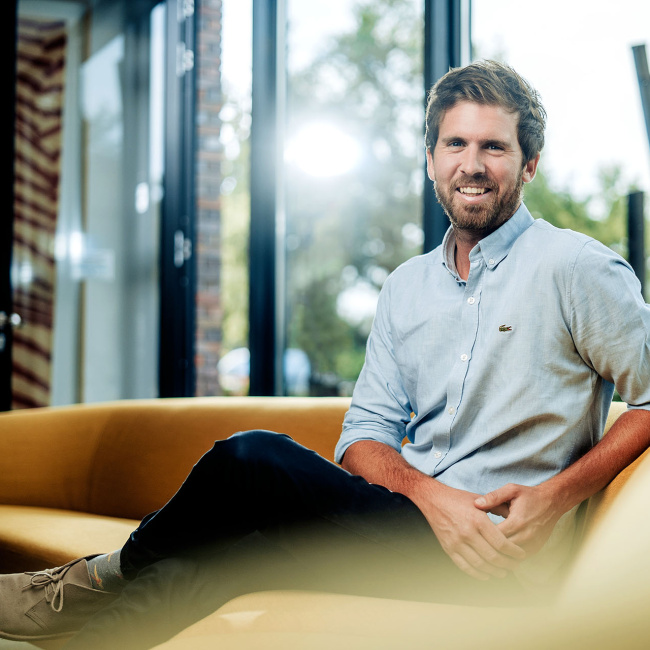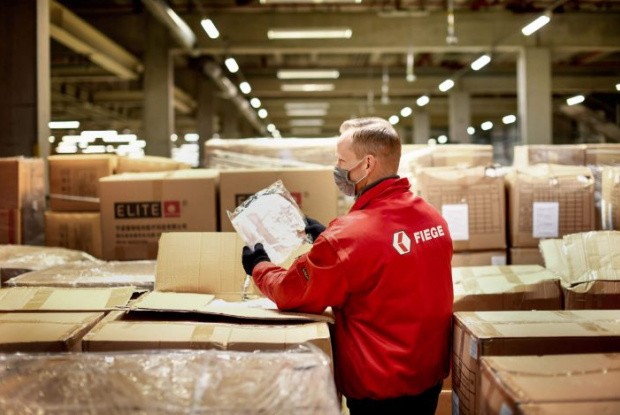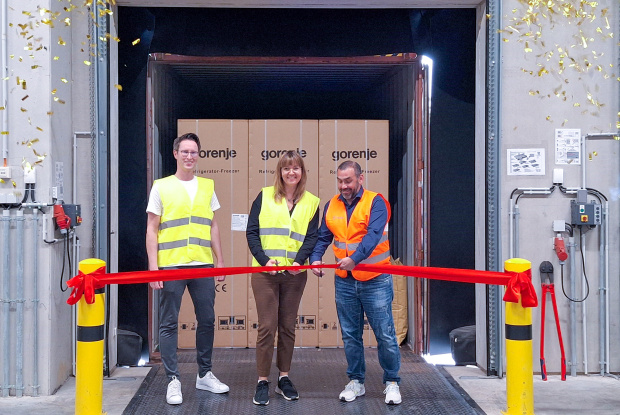Clinically reliable logistics
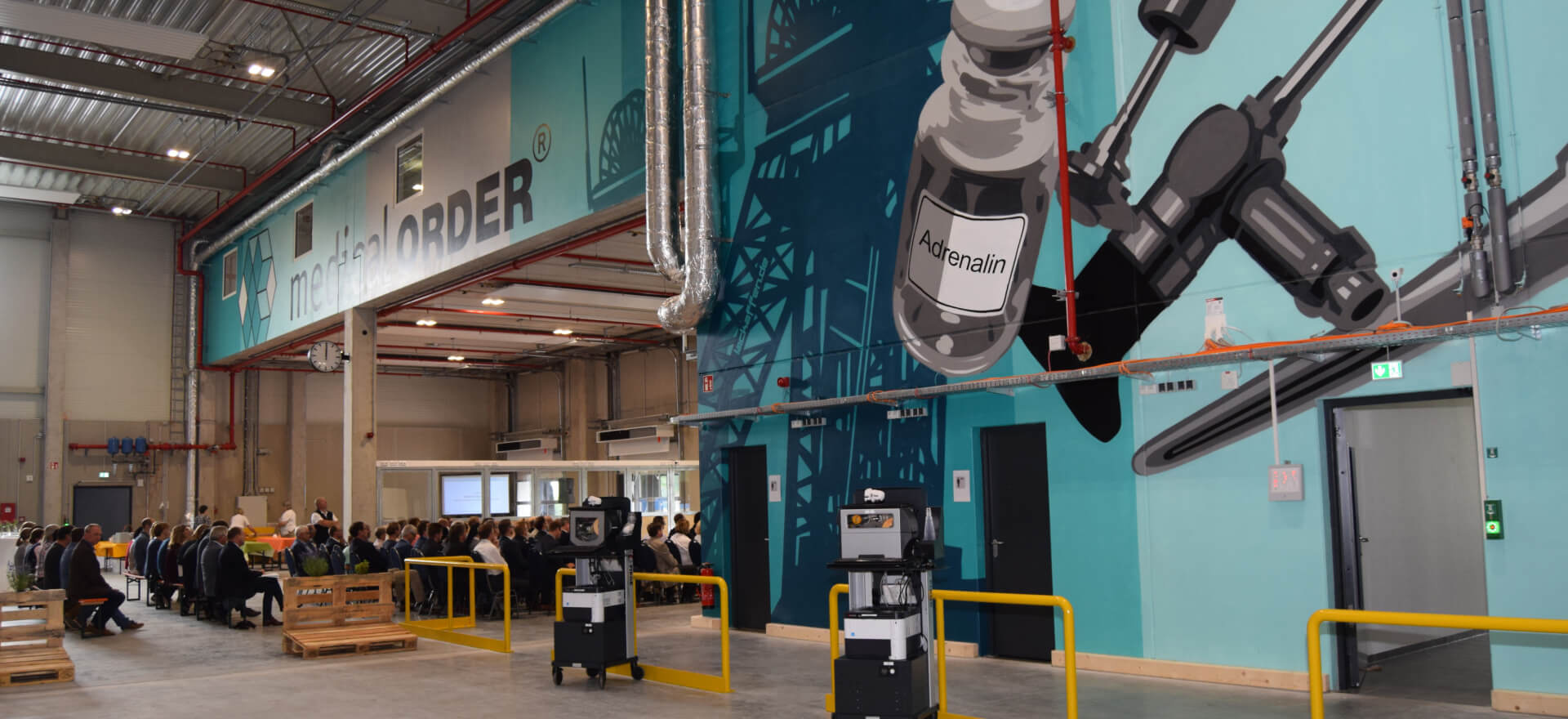
St. Franziskus-Stiftung and FIEGE joined forces and entered unknown territory in 2001. The medicalORDERcenter (MOC) in Ahlen was the first of its kind and remains a unique facility within Europe to this day. In the meantime, it operates as a hospital dispensary, commodity trading company or central sterilisation for 600 doctor’s offices and more than 50 clinics even outside of the Münster-based network.
The healthcare system is on the verge of major change. This type of change bears not only many risks but also opportunities to follow yet unknown paths. A situation which St. Franziskus-Stiftung and FIEGE are all too familiar with as they did just that when they formed the medicalORDERcenter 20 years ago.
“The dispensary at St. Franziskus hospital in Münster had become too small. The plans for a spin-off were already in the pipeline”, Georg Rosenbaum recalls, who is the Managing Director of MOS GmbH and MOIN GmbH as well as the chief pharmacist of the medicalORDERcenter in Ahlen. The situation was further compounded by fundamental changes in hospital hygiene introduced by law, which called for a separation of the clean room for centralised sterilisation and in turn required a complete re-organisation of the sterilisation wards.
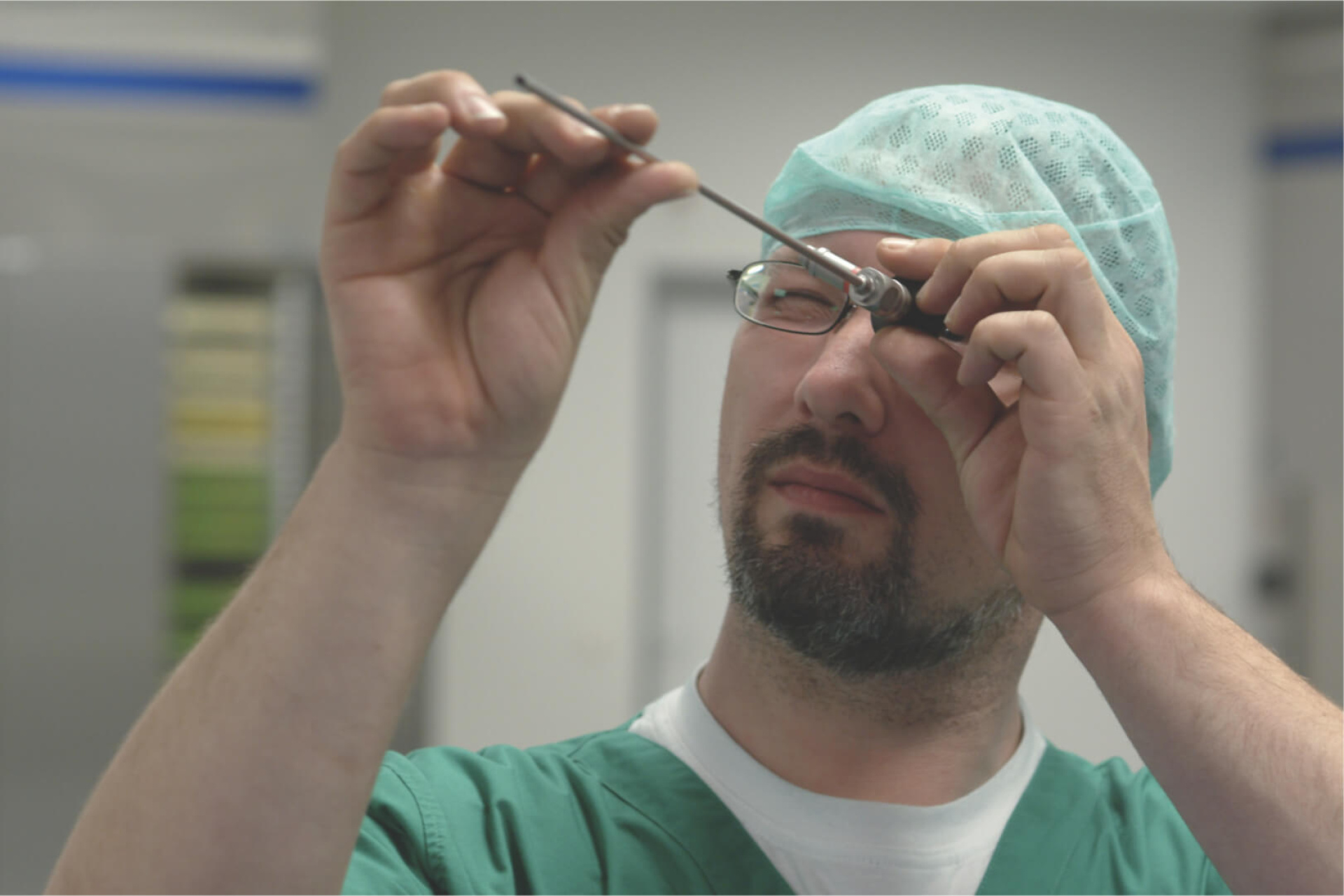
The medicalORDERcenter in Ahlen caters to three fields of hospital supply: Hospital dispensary, commodity trading company, and central sterilisation unit. (Photo: FIEGE)
Centralising logistics – decentralising know-how
At that point, St. Franziskus-Stiftung engaged in talks with FIEGE. “We jointly came up with the idea of centralising the dispensary, sterilisation, purchasing and storage at a single location inside the same building”, Rosenbaum says. A revolutionary step which culminated in 2001 with the launch of the MOC in Ahlen.
The challenge was to acquire new business with partners from outside of St. Franziskus-Stiftung, to secure the investment into the infrastructure in the long run. The modular offers from a single source were to secure customers’ growing quality requirements as well as new features that came with the out-of-house supply, like scanning in a modular basket system, supply assistance operations, or on-ward pharmacists at the clinics.
The starting phase which followed a ‘turning old into new’ principle was demanding for many reasons. The introduction of the Euro currency, a completely new computer system including chaotic-dynamic storage, the standardisation of product ranges and the setting up of a service and distribution structure: “There were issues all over the place. But we stayed calm, kept making the right decisions for months, gradually received acceptance from the medical side and showed that outside clinics actually benefit from our services”, so Rosenbaum’s summary.
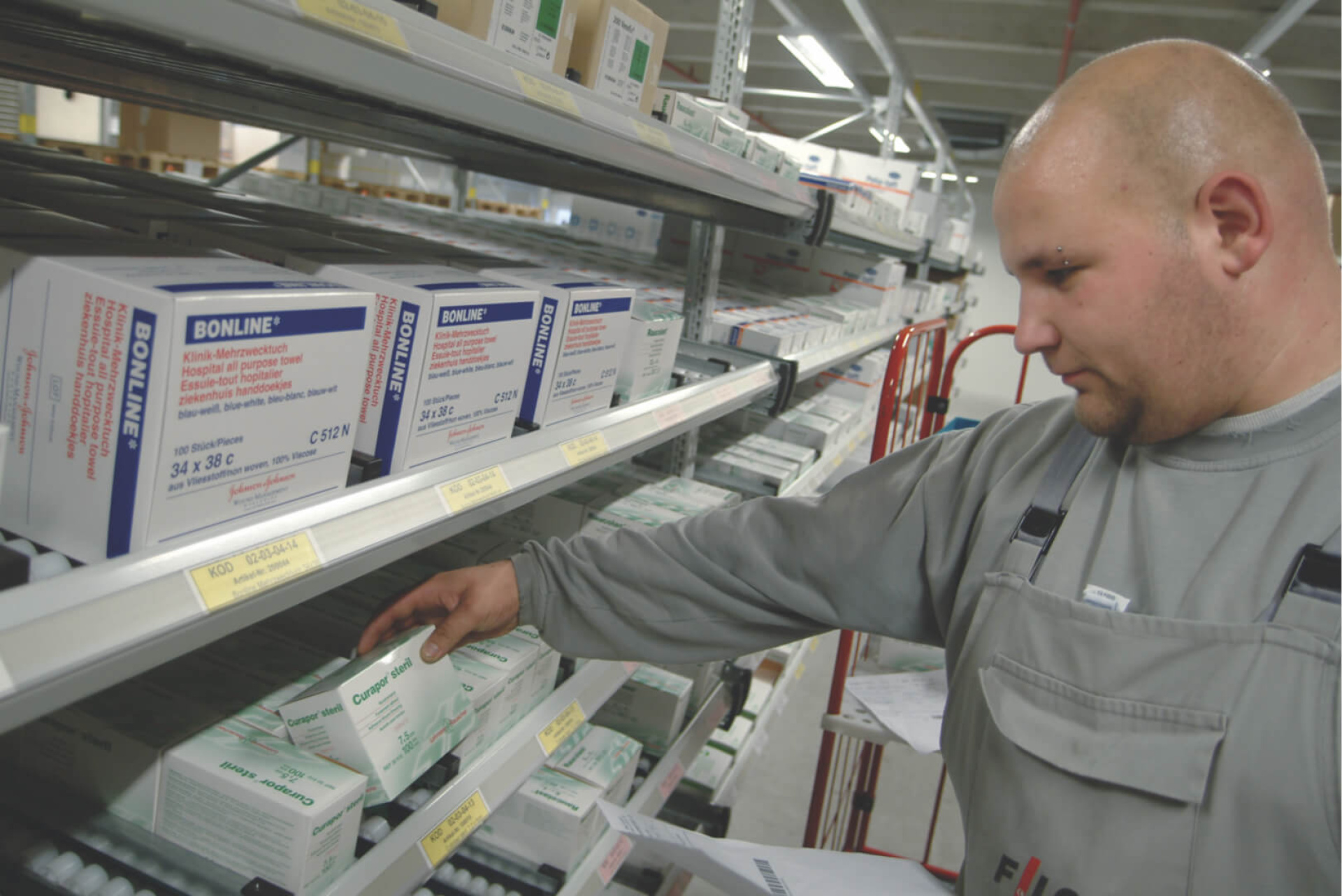
Large list of clients: The MOC offers a modular supply range to 50 hospitals and 600 doctor’s offices. (Photo: FIEGE)
Growth made annexe necessary
Since that time, the MOC has been composed of three modular segments for the supply of clinics: the hospital dispensary (medicalORDERpharma), a commodity trading company (medicalORDERservices GmbH) and centralised sterilisation (medicalORDERinstruments GmbH). FIEGE takes charge of the warehouse management for the medical products, pools all material flows of the centre for distribution and organises the regional and pan-regional transportation. Rosenbaum: “In the beginning, over twenty years ago, we had six hospitals on our client list. Today, that list comprises 50 clinics and 600 doctor’s offices with varying degrees of modular supply.”
To accomplish this organisational, technical, and logistical feat, plenty of space is needed. In 2012, a second MOC facility launched with the same set up. In 2017, the building in Ahlen was extended by high-rack storage as well as offices and recreational areas. Nowadays around 260 people are working at the MOCs. “We store around 1,300 different medicines and, next to some 3,500 items in the medical product warehouse, about ten times that many transient items. Our preparation of medical products serves all medical facilities and preps some 160,000 sterile units every year”, is how Rosenbaum outlines today’s dimensions.
Crisis-proof and crisis-tested
To offer supply certainty to patients all the way to the wards, medicine cabinets and operating theatres in a global sector where oversight is as tight as it is for the pharmaceutical industry, is a challenging and complex task day in, day out. Especially where global supply disruptions are pushing the system to the brink of collapse. Rosenbaum remembers: “In unison with FIEGE we built the expertise that this job calls for with great flexibility and experience. That is how we were able to uphold our full spectrum of services even during the Covid-19 pandemic.”
And twenty years after the MOC launched, there is still no comparable project anywhere in Europe where the three fields of service are housed under the same roof, supplying clinics on this scale from a single source. The clear goal in the future is to generate more services and consultancy as additional lines of business. It seems as if the MOC has lost very little of its willingness to pursue new paths over and again in more than two decades.
